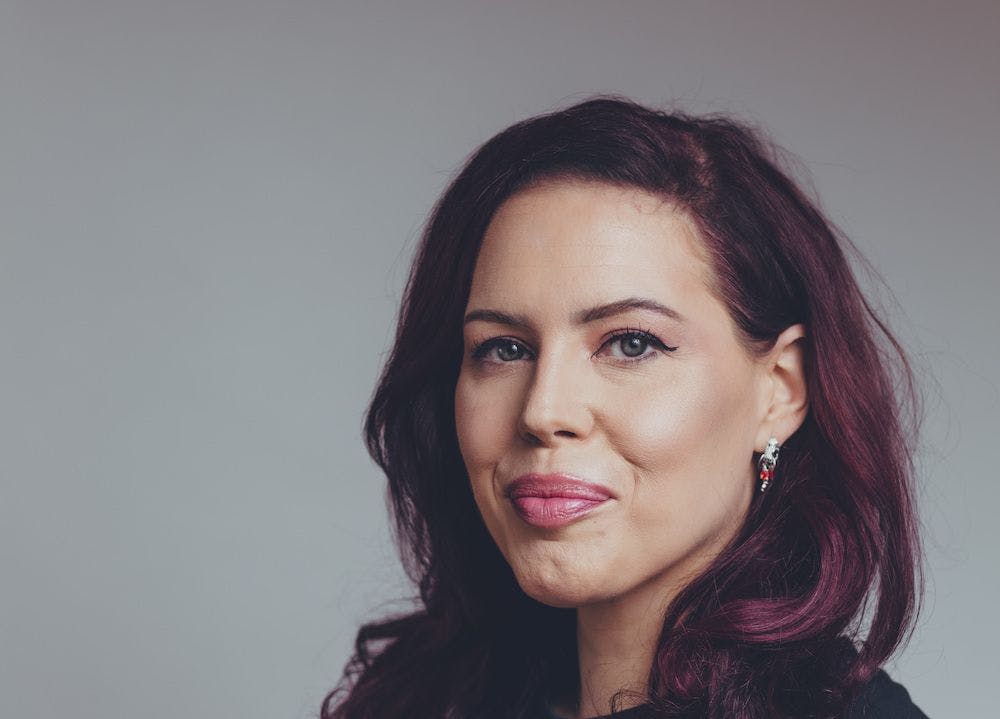
When it comes to considering the needs of today’s young adults, writer and campaigner Natasha Devon has a unique insight. We speak to Natasha about whether today’s teens have it harder?
Congratulations on Yes You Can! What did you want to achieve with the book?
Initially, it was going to be a book about exam stress. But the more research I did, the more I realised that all the things that you do to look after your mental health also make you a more effective learner. Stress and anxiety interferes with your ability to retain information, think creatively, and problem-solve. So, the book turned into a study guide. The tips in there are all things that make you cleverer, but they also look after your mental health.
That makes a lot of sense, so why is this a relatively new conversation?
We live in a very individualistic society, where we’re told that the harder we work, the more value we have. That’s something that children absorb from a really early age.
What’s happening in schools is you get this highly-pressured term, and then during a wellbeing week or a designated hour, it’s suddenly like: “Let’s all do some yoga and stroke a kitten, and now back to work.”

Photography | Jonathan Donovan
That’s created this mentality – in a lot of people, not just kids – where they think of their self-care as another thing on their to-do list, rather than thinking, if I start from the perspective of building habits that nurture my mental health, that’s also going to have benefits for other areas of my life.
What resources can help teens who are struggling?
I think the most helpful expert that I interviewed for the book was Dr Thomas Curran, who is an expert on perfectionism. He was talking about this overwhelming fear of failure that Generation Z has now. A lot of the activities in the book are designed to get them thinking about what they have to offer more broadly, so they understand that their entire value can’t be measured in a grade.
From your perspective, is life harder for today’s teenagers?
You get it a lot from certain commentators who go: “Well, I did exams and I remember being stressed, but it turned out fine.” What they’re missing is changes to the education system, but also that at the same time, because of austerity, things that we know support mental health have been pretty much stripped out of the school week. Children are doing a lot less physical education, art, drama – things that have a proven therapeutic value.
Some experts are now saying that, because there’s so much increased testing on young people – it starts at age four now – that the amount of stress we’re placing on still-developing brains is measurable as trauma.
The amount of stress we’re placing on still-developing brains is measurable as trauma
What’s the most surprising thing that you’ve learned from working in schools?
If I was just reading the headlines, I would have a really bleak view of what’s going on with teenagers. But when you’re actually working with them, they give you a lot of hope, because they really are wonderful.
I think sometimes, as adults, we forget to question things. I was asked the other day by a teenager: “Do you think that antidepressants are just anaesthetising us so that we don’t notice how wrong the world has become?” I thought, “Oh, wow.” I actually don’t have time to answer that question, but it’s such a great question.
If there’s one thing that Happiful readers can do today to support the young people in their lives, what would that be?
Listen to what they want. I was interviewing young people about the least helpful thing that happens around exams, and they say it’s as soon as they go on study leave, whoever’s at home is coming in every five minutes, going: “How’s your revision going? Where are you up to? What have you learned?”
They found it distracting and annoying, and there was a kind of implication that people didn’t trust them to do it themselves.
I think it’s asking them: “What do you need? What would be helpful to you? How can I support you?” And then really listening to whatever answer they say instead.
‘Yes You Can: Ace Your Exams Without Losing Your Mind’ (Macmillan Children's Books, £9.99) is out 2 April

